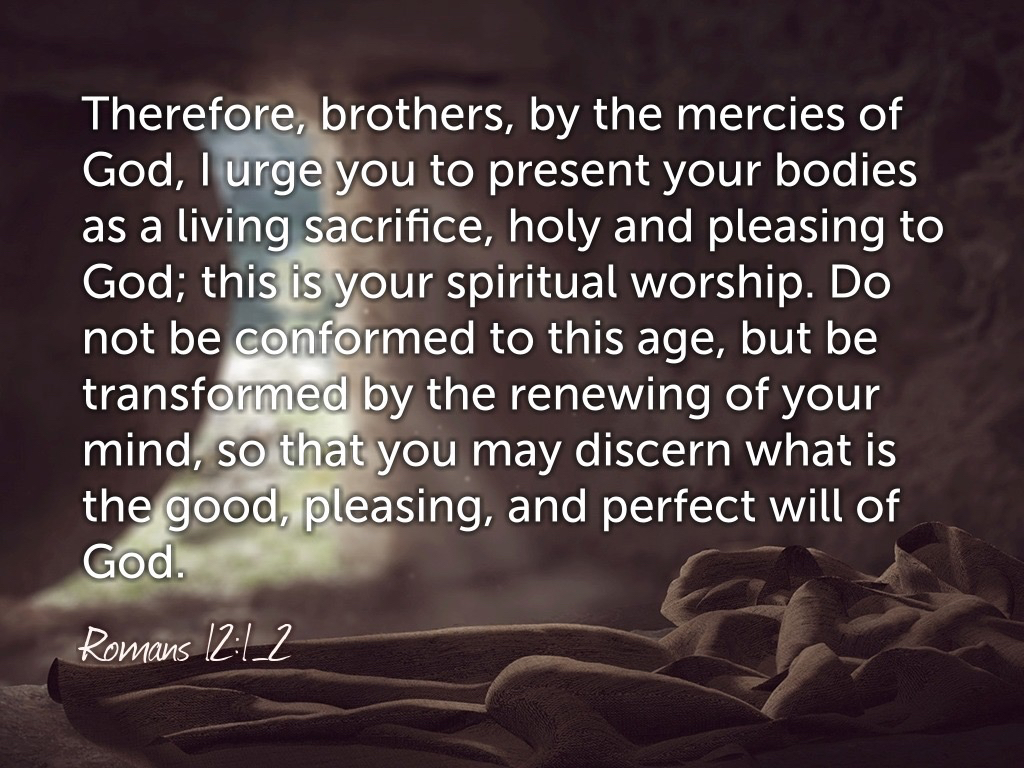Introduction
“I hate people playing on my intelligence.” My biology teacher always emphasized how much she hates students trying to manipulate or play a smart one on her.
Students are full of antics – a thousand and one ways to wriggle themselves out of difficult situations (uncompleted assignments, dirty talk in the classroom, absence from school, etc.)
Trying to manipulate and trick a teacher is a bad thing, whether it succeeds or not. How much more when we try to manipulate God and play a fast one on him.
“But no one can manipulate God,” you say. Yeah! Nevertheless, that does not stop us from trying.
What saith the Lord? Zedekiah vs. Jeremiah
God had a clear message for Judah – surrender to the king of Babylon. The nation had sinned against God and it was time for God to judge them. God called Jeremiah to deliver series of judgment messages to Israel. Some he delivered directly; others he delivered through acted parables.
There was no iota of ambiguity in the message. The constant repetition of these judgment themes was enough for Judah to get it.
However, though God’s message was ‘loud and clear,’ King Zedekiah will not have it. He sent Pashhur and Zephaniah to inquire of the Lord as if God had not spoken (Jeremiah 21:1-2).
But Jeremiah will not have it. He was not tired of repeating the same message – God will judge you through Nebuchadnezzar and his army. God has spoken and there is no going back. In the next chapters, Jeremiah delivered messages of judgment against the evil kings of other nations, Judah’s false prophets, and the nation.
However, the message was not all gloom and disaster – God will restore his people (Jeremiah 30-33). God will bring them back from captivity and establish them once more in the land of promise.
In the 33rd chapter, God sent Jeremiah with the same message to Zedekiah- first a captivity, then a restoration. But Zedekiah will not heed to God’s word (Jeremiah 37:1-2).
Instead, he sent for Jeremiah (after he had been delivered from prison) to inquire of the Lord again (Jeremiah 38:14-23). Even though God had been clear about his will and intentions, Zedekiah will not have any of it. He thought that by inquiring after God’s will over again he would get God to change his mind concerning Judah.
But Jeremiah was insistent – surrender to the King of Babylon or your family and city will be destroyed.
God made up his mind and Zedekiah could not change it. Inquiring after his will for the umpteenth time when it was as clear as day is a tactic in manipulation. You can put pressure on men to change their minds; you can nag your partner or parent into submission, but you cannot do it with God.
Zedekiah was not trying to get God to forgive them. If he wanted forgiveness, he would have led the people to repentance (though at this time, there was no going back).
The only thing he did that resembled repentance was covenanting together with the people to release their slaves (Jeremiah 34:8-10). Guess what? They changed their minds and took back the freed slaves. (verse 11).
This was not an attempt to make God forgive them (like Moses). The goal was to get God to change his mind, or at least to get Jeremiah to give a ‘positive prophecy’ like the others.
Balaam and the wages of unrighteousness
Zedekiah had a mentor from hundreds of years before. God made it clear to Balaam that the Israelites were blessed and he could not curse them. Also, he told him not to go with the emissaries from Balak. God’s message was clear.
Balak sent a new set of princes, more numerous and distinguished. They came for the same purpose, a request from Balak to curse Israel. Balaam knew God’s will in this matter – do not curse them for they are blessed.
Instead, he told them to wait while he went to find out what else the Lord would tell him. What else did he expect God to tell him? God’s prior revelation to Balaam had no clause so there was no point finding out something else.
But Balaam seemed to know better. God knew he wanted to go and he allowed him to go. The whole episode with the donkey confirmed that Balaam’s path was a reckless path. God might have allowed him (more on this later), but Balaam was acting in disobedience.
Balaam inquired of God again (23:5) but God did not change his mind. However, Balaam did not stop. At the behest of Balak, he continued to move from place to place, inquiring of God’s will when he had spoken already.
On the surface, it seems that Balaam was only acting out of the pressure from Balak. However, we know better. Peter told us that Balaam loved the wages of wickedness (2 Peter 2:15). John told us that he was the mastermind behind Israel’s sin at Moab (Revelation 2:14).
Balaam was not innocent. His persistent inquiries about the will of God was not a desire for clarity; it was a manipulative tactic. Balaam, like Balak, was hoping that God would change his mind. No wonder he was so quick to go to Moab with the princes.
A part of Balaam wanted to obey God and a part desired the wages of wickedness. What better way to enjoy them both than by getting God to change his will to match his desire?
Many of us are like Balaam and Zedekiah. God’s will is clear to us but since our desires contradict them, we want him to change his mind. Therefore, we look for different manipulative tactics to get him to change his mind so we can sin without a guilty conscience.
Many of our relentless ‘pursuit of God’s will’ are nothing but attempts to force God’s hand to submission. We shout ‘your will be done,’ but we mean ‘your will be done when it is my will.’

Let your word agree with theirs
Why will a King hate a prophet?
Ahab hated Micaiah “because he never prophesies anything good about me, but always bad.” (1 Kings 22:8). The irony here is that Ahab agrees that Micaiah was a prophet of the Lord (verse 7). He didn’t hate him because he mishandled God’s word. Instead, he hated him because the word of God he speaks don’t align with his desires – he never prophesies anything good about me.
On this occasion, he desired to know God’s will (not really) about a proposed battle expedition. After hearing from four hundred prophets, Jehoshaphat wanted to hear from another prophet. Micaiah told Ahab what he wanted to hear, at first. However, when pressed to say the truth, he told him that the battle will end in defeat and death.
At the end, he sent him to prison (verses 26-28). While pretending to seek God’s will, he was seeking a confirmation of his will. Well, he had his will and it led him to the grave (verses 29-40). Ahab had the appearance of a godly man but he was a manipulator seeking to get God on his side.
We will do everything God says, except…
After the fall of Jerusalem, Nebuchadnezzar appointed Gedaliah to rule over the remnant in Judah (Jeremiah 39).
Unfortunately, one of the army officers of Judah who fled before the Babylonian incursion returned and killed Gedaliah. The remnant of Judah were afraid that the King of Babylon will come for a revenge against them. They wanted to flee to Egypt to avoid another bloodshed.
However, they decided to pause and inquire after God’s will. What a noble decision, right? What made it more noble (on the surface) was their statement to Jeremiah: “May the Lord be a true and faithful witness against us if we do not act in accordance with everything the LORD your God sends you to tell us. Whether it is favourable or unfavourable, we will obey the LORD our God, to whom we are sending you, so that it will be well with us, for we will obey the LORD our God.” (Jeremiah 42:5-6).
What a noble sentiment! These people must be the most spiritual people on earth. Finally, here are some people who get it.
Well…
Jeremiah consulted God and he revealed his will to them – don’t go to Egypt. How did these ‘spiritual’ people who made such ‘godly’ statements react? They accused Jeremiah of lying. They said Jeremiah conspired with Baruch to hand them over to the Babylonians.
They went to Egypt, in disobedience to God’s commands. All those noble statements were a facade. These people wanted to go to Egypt; they ‘sought God’s will’ to find a ‘holy justification’ for their desire (go to Egypt). They appeared to be seeking God’s will but they were only looking for him to rubber stamp their will.
Even the most spiritual sounding ‘believers’ are guilty. It is one thing to say we will obey God’s will whatever it is, it is a different ball game when that will contradicts our desires.
Like the remnants of Judah, we’ll do everything God says, favourable or not, except when it is actually unfavourable (judging by our will and desires).
False prophets, false teachers, and their patronizers
As it is with the kings and prophets, so it is with the people.
The people love the prophets who agree with them; they could care less if he is a true prophet or not. Contrarily, they prefer a false prophet, who nods to their every whims and caprices, to a true prophet who challenges them.
“The prophets prophesy lies, the priests rule by their own authority, and my people love it this way. But what will you do in the end (Jeremiah 5:31)?
The new covenant people of God are as guilty as their old covenant counterparts. “For the time will come when people will not put up with sound doctrine. Instead, to suit their own desires, they will gather around them a great number of teachers to say what their itching ears want to hear. They will turn their ears away from the truth and turn aside to myths.”
These same people (old covenant and new covenant) will tell you how much they desire God’s will. They love prophets and teachers. Their feet are not far from the house of the prophet or teacher. If you saw them, you would envy their zeal. But they are not seeking God’s will; they are only seeking confirmations of theirs.
If the prophet or teacher says something they don’t like, they are ready to kill him (Mathew 23:29-39), hate him (Galatians 4:16), or kick him out (Acts 5, 6). They love God’s will until it contradicts theirs.
When God gives men over to delusions
Ahab wanted his will not God’s. So God sent a lying spirit to entice the prophets so he could have what he wanted – his will (1 Kings 22:19-24). God will have none of those sleekly manipulations.
God sends a powerful delusion to those who do not love the truth so they can believe a lie. (2 Thessalonians 2:11). When people love their evil desires rather than God’s good will, they will hear but never understand, see but never perceive, they will not perceive with their hearts (Isaiah 6:9).
When idolaters pretend to seek God’s will, he will entice the prophets that dare to speak to them and destroy them both (Ezekiel 14:7-11).
One way God judges people is by giving them over to their desires. If they want to sin, he gives them over to their sins and its destructiveness (Romans 1:24-32). If they want lies, he will give them over to delusions and false prophets that will destroy them.
If there are many false prophets in the land, it may be an indication that the people of the land love falsehood. If false teachers abound everywhere, perhaps the people of the land have itchy ears.
Staying true to scriptures
God has spoken clearly about homosexuality, abortion, true racial reconciliation, church leadership, masculinity, among others. No amount of theological conferences or ‘exegesis’ will change that. We might go over the text over again (like Balaam or Zedekiah), but God is done – it is what it is.
God will not move the theological boundaries for us. His word will not change to conform to our present culture. God’s word is trans-cultural. We’ll do well to forget all those lies that our generation is unique and demands special treatment.
If we persist in our desire to change or mangle God’s word to affirm our cultural compromise, God will give us over to our falsehoods and they will destroy us.

Thy will be done
We cannot manipulate God. He will not change his will to align with our desires. We can spend a year in the mountains but he will not bulge to tell us what we want (contrary to his word). He will not tell us anything different.
His word is sufficient; he will not edit it to make it ‘culturally relevant.’ No amount of maneuvering will change that.
Those who love God and his word are ready to submit their will to God’s. They don’t seek to change God’s will; they change theirs to conform to his.
True believers, like David, delight to do God’s will (Psalms 40:8). They throw away their theological innovations and smartness to submit to God’s plain word. They throw away their desires (will, dreams) to conform to God’s desires.
You can’t manipulate God, so stop trying. If you persist, he will harden your heart and give you over to your delusions. If you deny yourself, pick up your cross and follow him, you will find the greatest joy and the highest satisfaction in him.
“Very truly I tell you, unless a kernel of wheat falls to the ground and dies, it remains only a single seed. But if it dies, it produces many seeds. Anyone who loves their life will lose it, while anyone who hates their life in this world will keep it for eternal life.” (John 12:24, 25).
Let C S Lewis have the last words:
There are two kinds of people: those who say to God, ‘Thy will be done,’ and those to whom God says, ‘All right, then, have it your way.’ May we be among the former.



